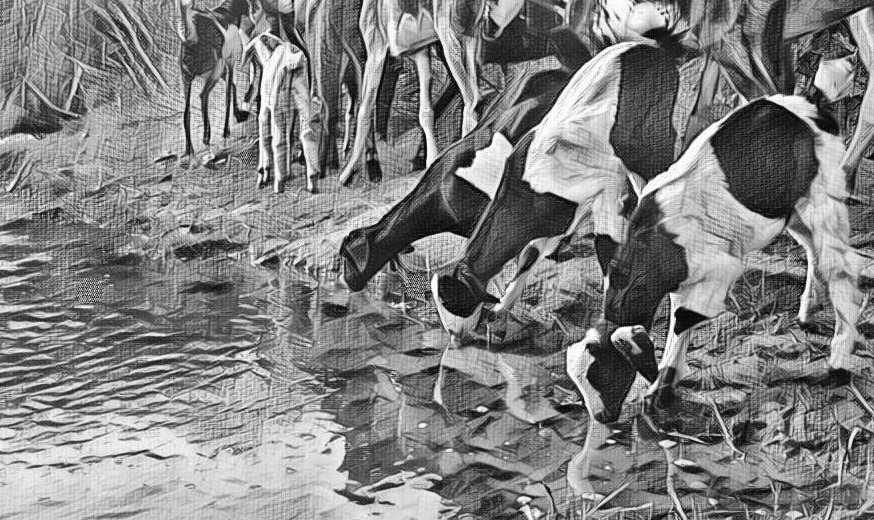After choosing the area for my Doctorate, I have visited the place for the first time in the year 1995. I still remember the strong unpleasant smell that greeted me when I arrived in at Patancheru. Mr Prashanth, my friend, accompanied me to the field area. As we moved to some of the villages, we saw brick kilns in the once fertile lands. The contractors have engaged the poor people from Odisha State to work for brick making. Where the children were also seen working. There are very few standing crops, and they were not healthy. There are two streams with polluted water flowing in the area they are Nakka Vagu (Fox Stream) and Pamula Vagu (Snakes Stream). We saw that a group of sheep and goats were drinking the coloured and obnoxious water from the Pamula Vagu, and the shepherds were washing their hands and feet in the same waters. I was touched by the plight of the people in the region. We heard stories that in some of the pools of water in the area when a buffalo went for a bath, its skin peeled off because the water was highly acidic.
Prof. K. Purushotham Reddy and Dr Kishan Rao were fighting for the rights of the people in the area. They have recorded the blue baby syndrome or a baby born due to excess pollutants which entered into the conceived mother. That is an illness that begins when large amounts of nitrates in water are ingested by an infant.
The skin rashes are easy to be found on many people. From cancer to all kinds of impacts on the internal and external parts of the people were also observed upon investigation by doctors. Women had often abortions too. Rice cultivated using the polluted water, smelled, turned yellow and it was spoiled by evening.
While transecting the field area, saw an ancient sculpture, the local Hindus have applied a vermillion to it. It is probably a sculpture of more than 1000 years old. Upon enquiry, someone said it was found while excavating the soil for brick making and was kept on the roadside. They said many such statues were unearthed in the area.
In the field of business, there is least caring about the history and the relics. Having seen this, I went to the Archaeology department and learnt that there is a continuous history of people living in the area since the 2nd Century BC. It means the land which sustained agriculture since then has become infertile and is unsustainable due to the so-called industrial development.
Pollution of water, soil and air may be the main cause of fallow lands. On the whole, about 20% of the farms were left fallow in most of the villages. Traditionally there had been two types of irrigation practices in the region, lift irrigation from wells and streams, and irrigation by gravity from tanks. The buckets pulled by bullocks called Mota are suitable for irrigating up to 8 acres. Motas were in practice until the 1980’s. The present practice of lift irrigation is by electric motor pumps. The availability of water from some tanks spread in the region can also be attributed to the prosperity of agriculture. Tanks are adequate in numbers, but now many such tanks are of little use except as storage ponds for industrial effluents. As these tanks are connected in series, the pollutants entering a tank at higher reaches pollutes all other tanks downstream. Presently many farmers shifted to dry-land farming as the water sources are polluted. The pollution of wells and tanks crippled all those farmers irrigating crops under them.
People don’t have access to the drinking water in the area. Some of the villagers were buying water or they were paying for the water supplied by the Government and sometimes buying from private agencies. By the end of my PhD, I have filed a Public Interest Litigation in the High Court of Andhra Pradesh to provide free drinking water under the polluter pays principle. The order came immediately, and the villagers are being provided free drinking water. Sad, the court had to intervene to ensure drinking water which they had from any of the sources since centuries in the region.
The life and livelihoods of the farmers living in Nakka Vagu basin are affected beyond repair.

Goats drinking the polluted water




